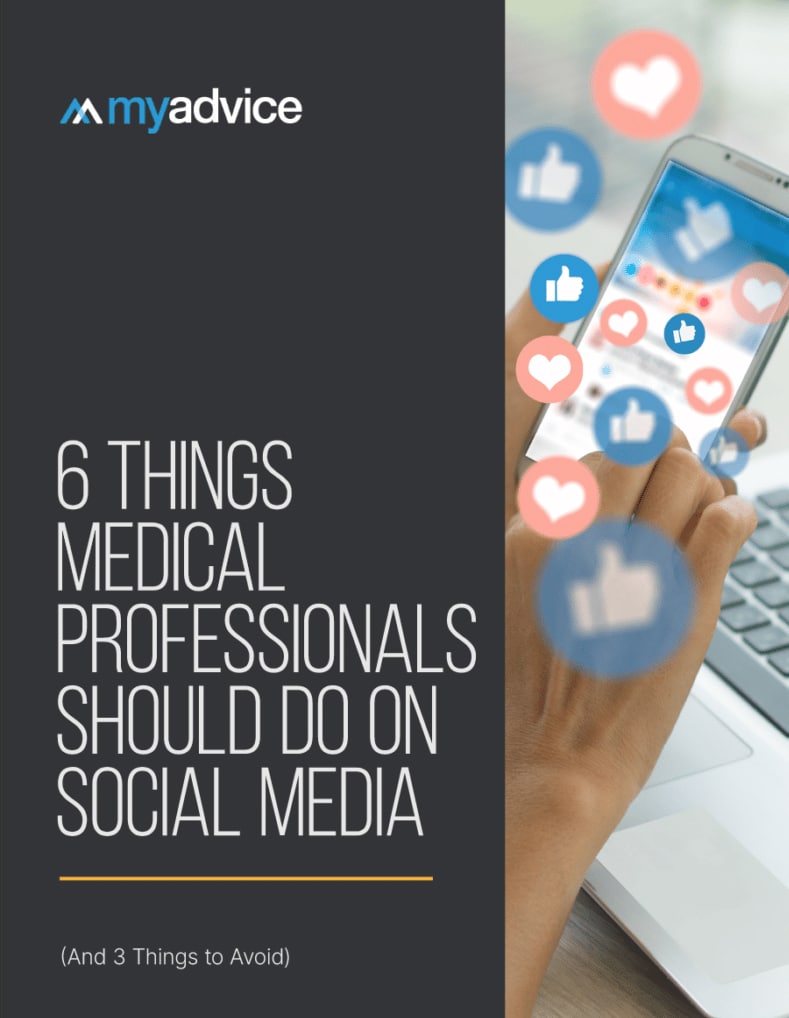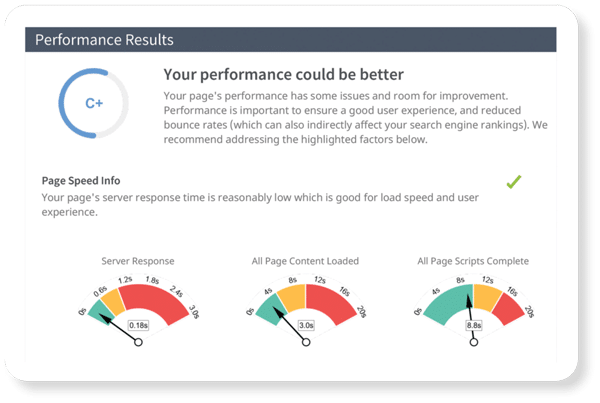
Download Your Free Guide Now
When done well, social media platforms have tremendous potential to help you connect with patients new and old alike.
Whether your goal is to retain existing patients, connect with new patients, or a combination of the two, figuring out what works takes a tremendous amount of time, as does the creativity required to consistently post engaging content. It can seem like a huge puzzle at best, and a huge waste of time at worst. The truth is, social media offers you a chance to meet your audiences exactly where they’re at, more like a friend than a business. Therein lies the beauty – and the challenge!
What’s the magic bullet of social media success? Well, there’s no one-size-fits-all answer. After all, the job of figuring out which social media messages resonate the most with your particular audience comes by way of lots of trial and error. We can, however, tell you how to go about figuring out what works and what doesn’t. We can also tell you what you need to avoid. With this guidance in hand, you’ll be well equipped with the Advice you need to start making your social media excellent. Oh yeah, and if you don’t want to do this on your own? We can help. Check out our Social Power feature for a tool that does the planning and the creative work for you.
DO...
1) ...identify your audience.
Your potential patients are already online. They’re searching for answers to their questions and researching the doctors and specialists that might be able to help them to decide who is the best fit for their care. Identifying them means figuring out what they’re searching for, and how your social media content can help answer their questions and convince them that you’re the provider they should trust. Here’s how you do it. If you have an established practice, you might already have an idea of where your patients are coming to you from and what they’re interested in. Surveying your patients to get a better understanding of how they found you is a good place to start. From there, it’s a matter of figuring out which platforms they’re using, as well as deciding which platforms will lend themselves to your content. For example, Instagram is a highly visual platform, which makes it perfect for plastic surgeons and aestheticians.
2) ...set specific goals.
Once you’ve decided which platforms you want to utilize, it’s time to set some preliminary goals. Do you want to find new patients? Connect with and retain the patients you already have? Some combination of the two? Deciding on these main goals will help you decide how to set the smaller goals. If your goal is to grow your practice through social media, it’s important to make sure your profiles are completely filled out and give people a way to make an appointment or contact you for more information.
3) ... write for humans.
It can be hard to know how to write your social media posts. Too casual, and you aren’t conveying the professionalism you likely want to be known for. Too formal, and you lose the ability to connect with your patients and prospects. The key is to strike a balance that resonates with your audience.
4)... experiment with different kinds of posts.
Testing is your friend and the key to figuring out success with social media. Don’t be afraid to experiment and try things out (within reason, of course).
5) ... automate wherever possible.
The key to keeping the workload manageable when it comes to social media is automation. This means a calendar to help you plan out all of your upcoming content and see what’s missing. Here’s an example from our own social media management tool. Some tools will even do the creative work for you by suggesting posts based on your preferences and past performance. Whatever you choose, make sure the time savings will benefit your practice enough to offset the investment you’ve made in your social media channels.
6) ... verify the information you post.
Social media is infamous for spreading all kinds of information – and misinformation. It's your duty to verify the things you post online before you post them. Patients trust doctors to give them correct, professional opinions, and the online space is no different.
DON'T...
1) ...post sporadically.
Getting into a consistent posting schedule is one of the most important keys to success in social media. The world of social media (and digital marketing in general) moves so quickly that posts get lost quickly, as algorithms tend to give more weight to recent posts. Posting consistently gives you the greatest chance to get your content into the feeds of your audiences.
2) ...offer medical advice.
Sharing general advice and tips about your area of expertise is a fantastic way to grow your social media audience. Offering specific medical advice is not. If your audience is asking for specific medical advice, requesting that they make an appointment with your office is a safer response.
3) ...forget about patient confidentiality.
Medical professionals have very real obligations to HIPAA laws, but your obligations to patient confidentiality don’t end there. Revealing any information which could be recognized by patients or their families opens you up to all kinds of liability. Be very stringent about making sure any cases you talk about are in as general terms as possible, or create entirely fictional accounts if possible. If you do want to refer to a specific patient, getting informed consent from the patient, their guardian, or their power of attorney is crucial before posting anything online. Remember, once you post things online, not only should they be considered permanent, but the possibility of losing control of the narrative of your posts is also very real as things are shared. Maintaining the trust of your patients is priority number one. Taking the time to make sure you aren’t speaking negatively of patients or sharing information you shouldn’t be is a necessary step.
Contact us for a free demo.
If you’re ready to speak with a knowledgeable marketing professional, we are pleased to offer a free online demo and consultation.

